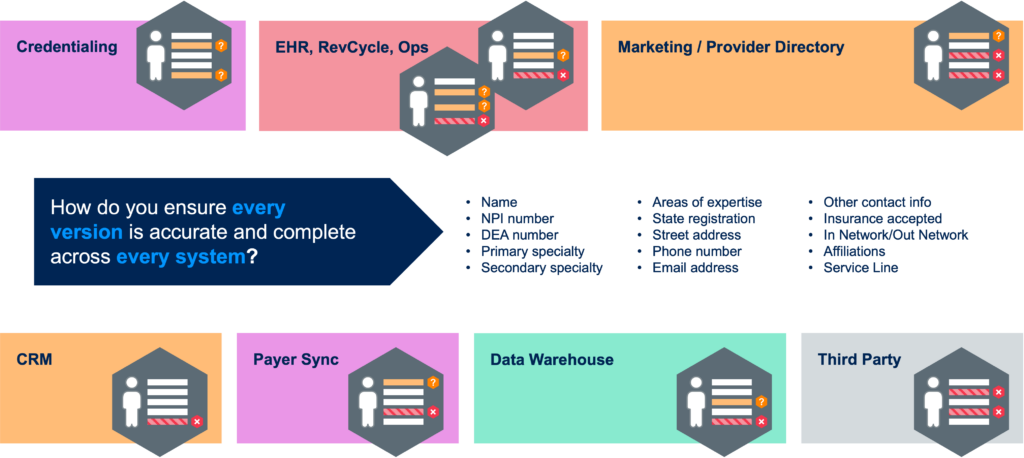Top Database Providers for High-Performance Applications
Top Database Providers for High-Performance Applications
Blog Article
Secret Attributes to Try To Find When Choosing a Database copyright
Choosing a database provider is an essential decision that can considerably influence your organization's procedures and data management method. Among the important features to think about are scalability alternatives, which make sure that your system can adjust to expanding demands.
Scalability Options
When choosing a database service provider, comprehending scalability alternatives is crucial to making certain that the picked service can suit future development. Scalability refers to the capacity of a data source system to broaden its ability and performance in action to raised demand. There are 2 key kinds of scalability: upright and horizontal.
Upright scalability, or "scaling up," includes boosting a single server's resources, such as CPU, RAM, or storage space. This method can be uncomplicated and cost-effective for smaller sized applications yet may get to a limitation where additionally upgrades are not practical or also expensive.
Horizontal scalability, or "scaling out," includes adding a lot more servers to distribute the tons. This technique enables for greater versatility and can fit considerable rises in information quantity and individual web traffic (database provider). It is particularly beneficial for cloud-based database remedies that can dynamically allot resources based on demand

Safety And Security Actions

When assessing protection steps, think about the execution of encryption protocols (database provider). Data-at-rest and data-in-transit file encryption are crucial to guarantee that delicate info continues to be secured, even in case of a safety and security breach. Additionally, seek service providers that provide solid authentication systems, such as multi-factor verification (MFA), to even more enhance accessibility control
Routine protection audits and compliance with industry criteria, such as GDPR or HIPAA, are a sign of a copyright's commitment to information protection. Furthermore, ask about their occurrence reaction strategy; a robust plan can decrease the impact of any type of prospective safety event.
Efficiency Metrics
Examining efficiency metrics is vital for companies to guarantee that their picked database copyright meets operational requirements. Trick efficiency metrics include response time, throughput, and scalability, which collectively determine the effectiveness of data source operations under differing tons.
Reaction time is crucial, as it mirrors how rapidly the database can refine questions and return outcomes. Organizations must seek metrics that show ordinary reaction times during peak and off-peak hours. Throughput, commonly gauged in transactions per second (TPS), offers understanding right into the data source's ability to take care of high volumes of requests without performance destruction.
Scalability analyzes the data source's ability to grow with the organization's requirements. A durable database supplier should show horizontal and vertical scaling abilities, allowing for seamless modifications as needs fluctuate. In addition, comprehending latency, especially in dispersed systems, can aid organizations assess the responsiveness of the database find throughout various geographical places.
Consumer Support
Dependable client assistance is a keystone of effective database monitoring, providing organizations with the assistance required to maximize and resolve problems efficiency. When choosing a database service provider, assessing the level of consumer assistance they offer is vital. A robust support system must consist of multiple networks of communication, such as phone, e-mail, and live conversation, guaranteeing that users can access assistance whenever they need it.
In addition, receptive assistance teams that are available 24/7 substantially boost the dependability of the database solution. Trigger reaction times and effective resolution of issues can substantially decrease downtime and boost total performance. It is likewise useful to consider the accessibility of devoted assistance employees, who can supply customized aid based upon an organization's certain requirements.

Pricing Framework
When thinking about a data source service provider, the rates structure is a crucial aspect that can significantly influence an organization's budget plan and general strategy. A flexible and clear prices model is crucial for lining up the database costs with organization needs - database provider. Organizations needs to examine whether the rates is based on intake, per user, or a flat price, as each model can produce various financial ramifications with time
It is essential to evaluate any kind of added costs connected with the company's solutions, such as information storage space fees, deal expenses, and assistance costs. Going Here Some suppliers might supply tiered rates, enabling scalability as the company expands, while others might enforce stringent limitations that might become expensive as information requirements increase.
Additionally, companies need to consider the long-term worth of the database solution. While reduced first costs can be appealing, they may not account for future upgrades, maintenance costs, or assimilation prices. Performing a thorough cost-benefit evaluation will certainly assist identify one of the most ideal prices framework that balances support, performance, and scalability, inevitably read this ensuring that the picked database company lines up with the organization's functional and monetary goals.
Conclusion
In conclusion, picking a database service provider necessitates mindful factor to consider of various critical attributes. Scalability options ensure flexibility to future development, while durable safety and security actions protect delicate info. Evaluating efficiency metrics makes it possible for the identification of effective data sources, and easily accessible consumer support enhances the general customer experience. A clear rates framework further adds to notified decision-making. By completely examining these aspects, organizations can make calculated choices that line up with their long-term goals and operational needs.
Choosing a data source copyright is an important choice that can considerably affect your company's operations and data monitoring approach.When selecting a database supplier, recognizing scalability options is essential to making sure that the picked solution can accommodate future growth. When selecting a database company, examining the degree of consumer assistance they supply is essential.When considering a database service provider, the prices structure is a critical element that can substantially affect an organization's budget plan and general technique. Carrying out an extensive cost-benefit analysis will help identify the most suitable rates framework that stabilizes performance, scalability, and support, eventually guaranteeing that the selected data source copyright lines up with the organization's financial and functional purposes.
Report this page